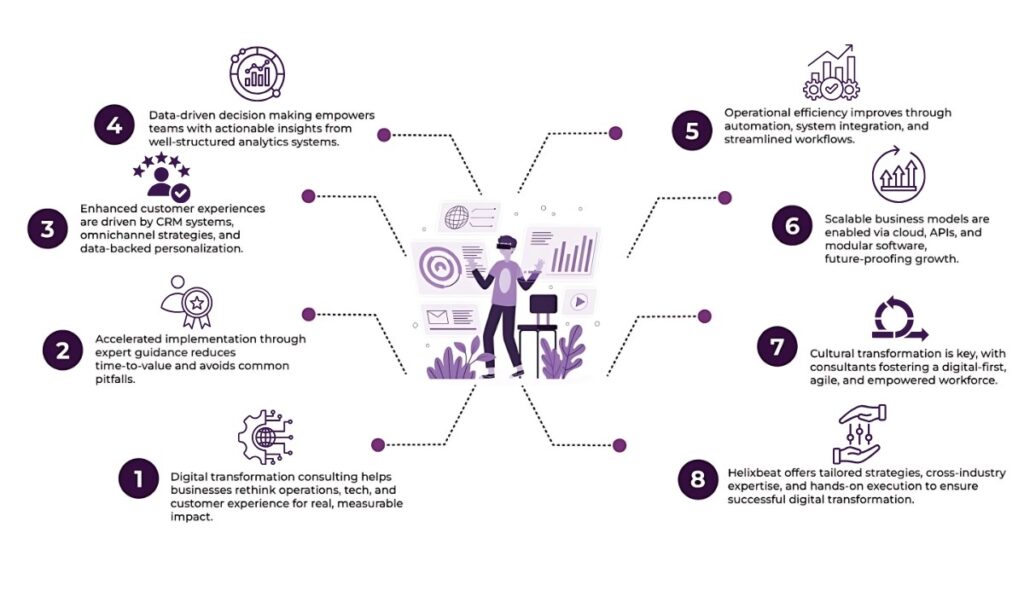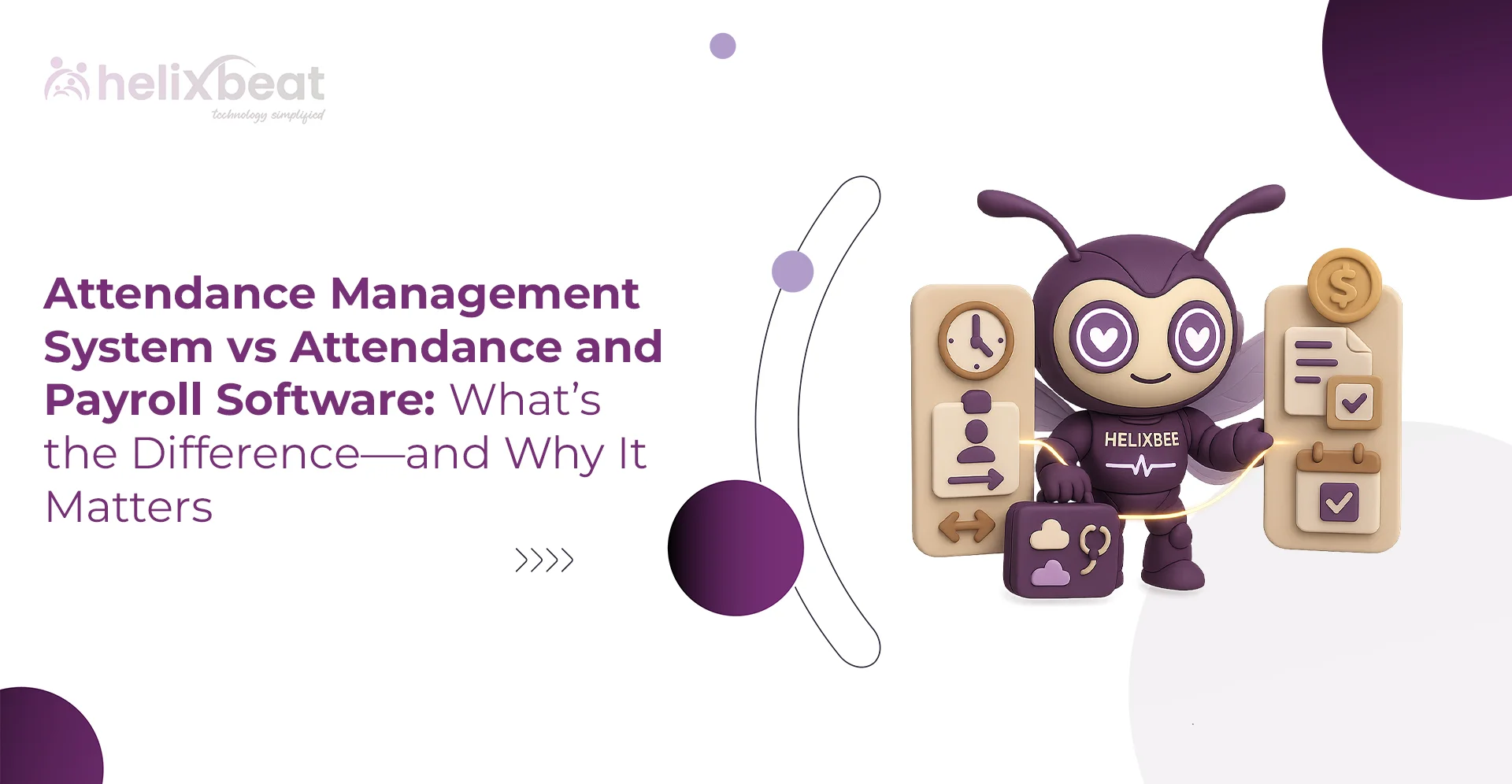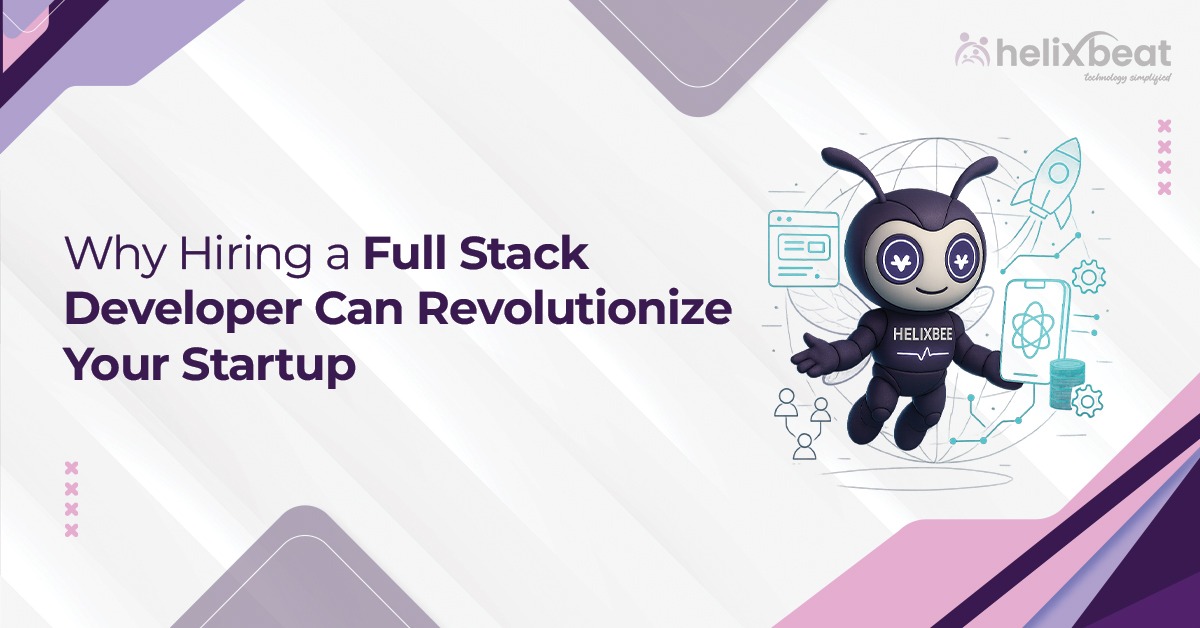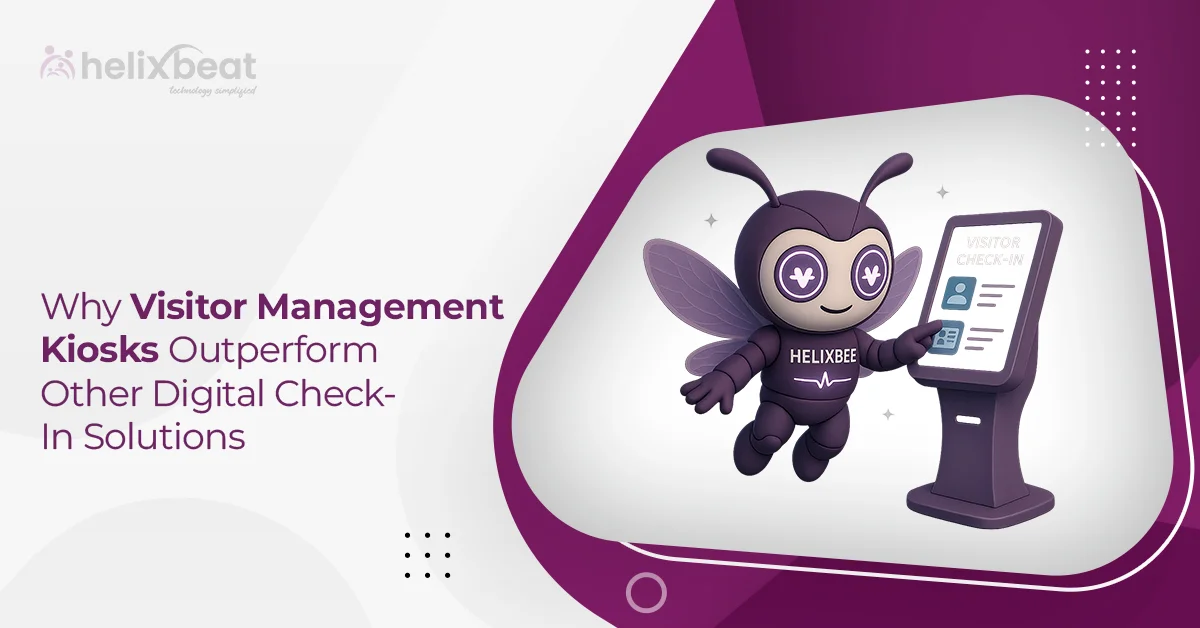We live in an era where agility isn’t just a competitive edge—it’s survival. Technologies shift overnight, customer expectations evolve rapidly, and market dynamics demand quick adaptation. Businesses now realize that true transformation is more than adopting digital tools; it’s about rethinking how they operate at every level. This is where digital transformation consulting becomes a game-changer.
But how does this consulting actually deliver measurable business results? Let’s break it down.

Table of Contents
What Is Digital Transformation Consulting?
At its core, digital transformation consulting involves expert guidance to help organizations overhaul their operations, business models, and customer experiences using digital technologies. It’s not just about implementing new software or upgrading legacy systems—it’s a strategic initiative that touches everything from leadership culture to customer engagement.
Digital transformation consultants work closely with organizations to:
- Identify inefficiencies in current workflows
- Assess existing technology stacks
- Define long-term goals and digital roadmaps
- Integrate emerging tech like AI, IoT, and data analytics
- Upskill teams to match new systems and processes
The Shift from Traditional to Digital
1. Accelerated Time-to-Value
One of the most tangible benefits of digital transformation consulting is speed. Consultants bring with them a proven framework for implementation. This fast-tracks results because they already know the pitfalls to avoid and the accelerators that work.
Whether it’s deploying a new ERP system or redesigning a customer service portal, consultants reduce the learning curve. As a result, businesses don’t have to waste months figuring things out or experimenting with suboptimal solutions.
Real Impact: According to a report, Walmart has integrated AI-driven inventory management systems to enhance supply chain efficiency. This implementation has led to improved inventory turnover and reduced out-of-stock incidents.
2. Better Customer Experience (CX)
In this digital economy, CX often defines brand loyalty. Customers today expect instant responses, personalized recommendations, and seamless digital interfaces. Therefore, digital transformation consultants specialize in mapping the customer journey across channels—online, mobile, and in-person—and identifying pain points.
Following this, they assist with implementing customer relationship management (CRM) systems, chatbots, predictive analytics, and omnichannel strategies to improve customer engagement.
Real Impact: When Starbucks redesigned its entire customer journey through digital transformation, its mobile orders surpassed 30% of total transactions in the U.S. As of February 2025, Starbucks Rewards had nearly 34.3 million active members in the U.S., representing a 13% year-over-year increase.
3. Data-Driven Decision Making
Consultants help businesses unlock the power of data. While many organizations collect data, few know how to leverage it effectively. Digital transformation consulting includes designing robust data architectures, dashboards, and analytics pipelines that turn raw data into actionable insights.
As a result, executives gain real-time visibility into operations, marketing teams get sharper customer profiles, and supply chains become more predictive.
4. Improved Operational Efficiency
Many companies struggle with redundant processes, siloed teams, or outdated systems. Digital transformation consulting often begins with a comprehensive audit of internal workflows to uncover these bottlenecks.
From there, consultants may introduce automation, integrate systems, or digitize manual processes. The goal is to streamline operations without compromising on quality or compliance.
Real Impact: FedEx integrated AI-powered sorting systems and robotic process automation (RPA) into their operations to enhance efficiency and reduce errors. For example, in January 2022, FedEx launched “DoraSorter,” an AI-powered intelligent sorting robot, in collaboration with Dorabot. DoraSorter handles small inbound and outbound packages to strengthen operational efficiencies.
5. Scalable Business Models
In a volatile market, scalability matters. Whether entering new markets, onboarding thousands of customers, or pivoting to a new product line, digital transformation consulting helps businesses adapt quickly without re-engineering their entire infrastructure.
Cloud migration strategies, API-driven architecture, and modular software designs are often at the heart of scalable transformation.
Real Impact: In its early days, Netflix operated using a traditional monolithic architecture. As the platform grew rapidly in popularity, it began transitioning to a microservices-based architecture hosted on Amazon Web Services (AWS). This architectural overhaul allowed Netflix to support massive user growth, especially as global streaming demand surged. By 2016, Netflix supported over 80 million subscribers — a more than 3x growth compared to a few years earlier — while maintaining high availability and faster deployment cycles.
6. Cultural Shift and Team Empowerment
Digital transformation is as much about people as it is about tech. Consultants work with systems, leadership teams, and employees to promote a digital-first mindset. This includes training, change management, and leadership coaching.
As a result, employees become more agile, collaborative, and aligned with business goals. The organization becomes future-ready—not just because of its tools but also because of its mindset.
Why Businesses Are Increasingly Turning to Digital Transformation Consulting
Here are a few reasons behind the growing demand for expert guidance:
- Rapidly evolving tech landscape: New tools emerge constantly, and it’s hard to keep up without expertise.
- Internal resistance to change: Change management requires an external perspective to navigate effectively.
- Shortage of in-house skills: Internally, specialised knowledge in AI, data engineering, cybersecurity, and cloud platforms is often lacking.
- Focus on core business: Leaders want to focus on growth while leaving tech strategy to specialists.
Why Choose Helixbeat for Digital Transformation Consulting?
Looking to transform your business with technology that actually works? Helixbeat helps you do just that—with expert-led, results-driven digital transformation consulting.
We tailor every strategy to your business goals, streamline operations, unlock data insights, and guide you from planning to execution. With cross-industry experience and a human-first approach, we don’t just recommend tools—we help you make lasting change.
From Ambition to Action
Digital transformation isn’t a buzzword—it’s a critical business strategy. While the path may be difficult, it doesn’t have to be confusing. With the right digital transformation consulting partner like Helixbeat, businesses can shift from reactive to proactive, from manual to automated, and from fragmented to connected. Get in touch today—let’s transform your business—together.
FAQs
1. What does a digital transformation consultant do?
They assess your business processes and technology infrastructure to design and implement a strategic digital roadmap.
2. Which businesses benefit the most from digital transformation consulting?
Any business looking to scale, improve efficiency, or modernize operations—whether in manufacturing, retail, healthcare, or finance.
3. Is digital transformation only about adopting new technology?
No. It’s also about cultural change, process optimization, and aligning business goals with digital capabilities.
4. How long does a digital transformation project take?
It varies based on scope but can range from a few months to several years for enterprise-wide initiatives.
5. What’s the ROI of digital transformation consulting?
ROI can come from reduced costs, increased revenue, faster time-to-market, or improved customer satisfaction.
6. Do small businesses need digital transformation consulting?
Yes—especially to compete with larger, more tech-savvy rivals or to scale operations efficiently.














